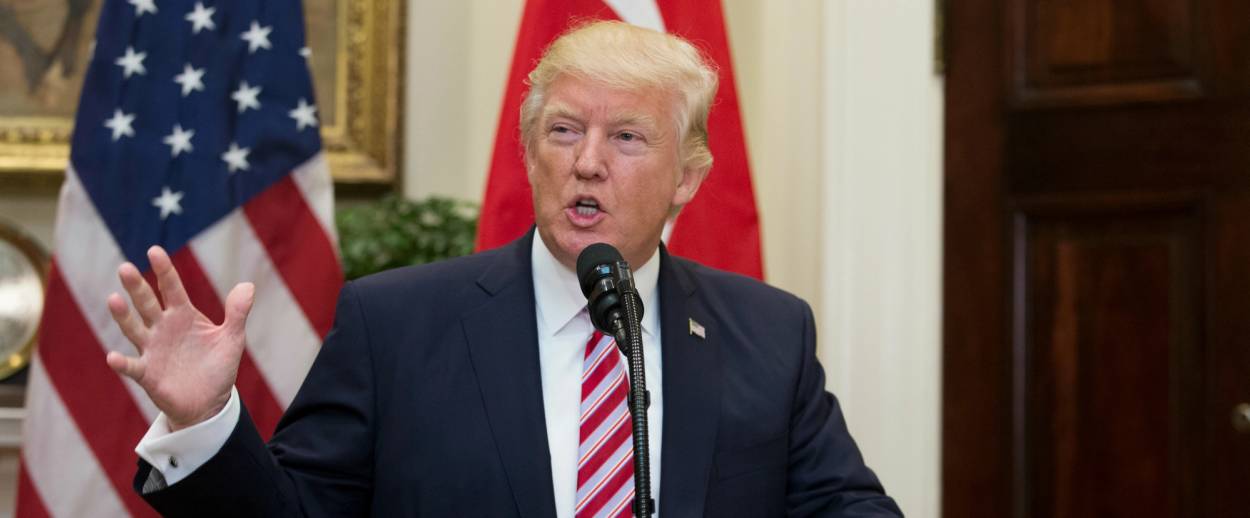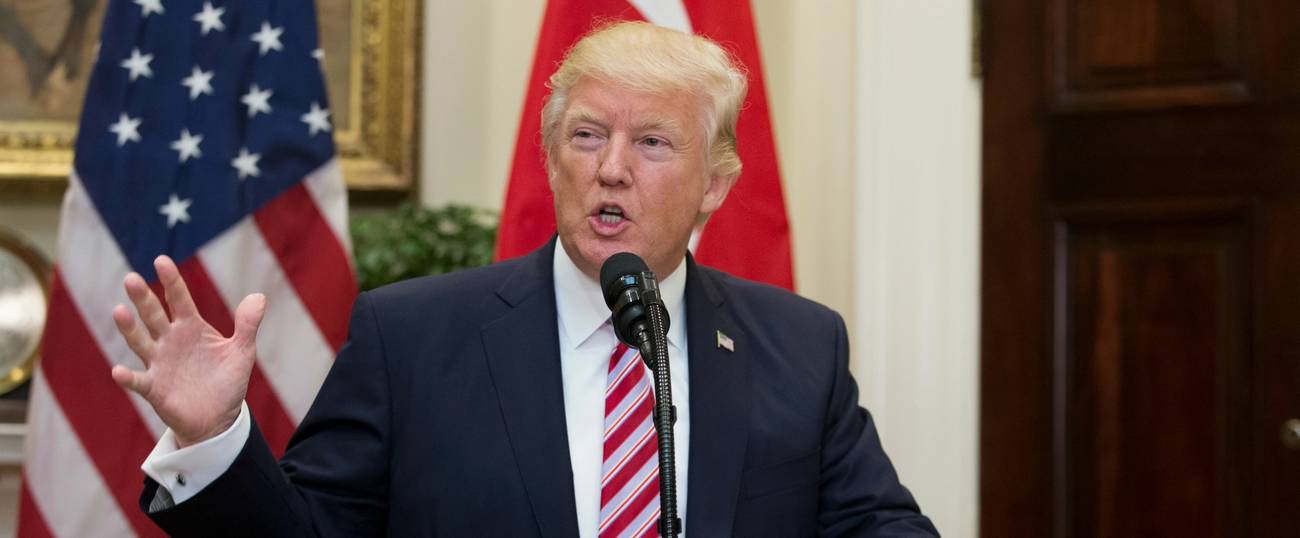Trump Didn’t Just Reveal Israeli Intel on ISIS. He Showed Why the U.S.-Israel Alliance Is So Resilient.
Trump’s intel scandal sheds light on what America gets out of the U.S.-Israel relationship




Media reports about Donald Trump’s alleged exposure of Israeli intelligence to Russia regarding an ISIS terror plot have naturally focused on what the incident tells us about the president and his fitness for office. But along the way, these accounts have also revealed an essential aspect of the U.S.-Israel alliance that traditionally has largely been hidden from public view: Israel’s essential role in providing Middle East intelligence to the United States.
To say that the U.S.-Israel relationship rests on “shared values and shared interests” is the stuff of political pablum. Presidents and politicians of both parties and countries have used this phrase so frequently that is has become an almost comic cliche. And yet, in practice, many average Americans and Israelis are unaware of the slogan’s implications. That’s because much of the underbelly of the U.S.-Israel alliance has remained necessarily under wraps—specifically, the collaboration of the two countries’ intelligence agencies.
The near total silence on what Israel actually provides to America has often provided an opening for anti-Israel critics who assert that the Jewish state is simply free-loading on U.S. aid. But thanks to the indiscretion of President Trump, we are getting a glimpse of the real story behind the scenes.
“The classified information that President Donald Trump shared with Russian officials last week came from an Israeli source described by multiple U.S. officials as the most valuable source of information on external plotting by Islamic State,” reported Shane Harris in the Wall Street Journal last night. In other words, Israel is America’s chief source of intelligence on the greatest foreign terrorist threat facing the country. The information was so sensitive that it was not even shared with America’s other “Five Eyes” intelligence treaty allies, Britain, Canada, Australia, and New Zealand.
U.S.-Israel intelligence sharing dates back decades, as Ronen Bergman recounts in the New York Times:
This relationship was born in 1956, when an Israeli spy was the first to obtain a copy of the famous speech by Premier Nikita Khrushchev of the Soviet Union admitting Stalin’s crimes and handed it over to the C.I.A. Since then, the cooperation has grown beyond the C.I.A.-Mossad liaison to take in other agencies, including in particular the collaboration between the N.S.A. and its Israeli counterpart, Unit 8200 of the Military Intelligence Directorate; the F.B.I. and its parallel internal security agency in Israel, the Shin Bet; and other organizations. The N.S.A. and Unit 8200 have signed a number of secret agreements and have even erected giant N.S.A. satellite antenna dishes southwest of Jerusalem…
In practical terms, Israel has become the eyes and ears of the United States in the Middle East.
This is one key reason why despite many disagreements, from the Iran nuclear deal to settlement construction, U.S.-Israeli intelligence and military ties only deepened under the Obama Administration, which worked assiduously to cultivate them. “In recent months,” notes Bergman, “Israel has passed on to the United States a great deal of highly sensitive and detailed information about the close coordination between the armed forces of Syria, Iran, Hezbollah and Russia, under Russian command.”
As Sarah Wildman writes in Vox:
US leaders often pay lip service to the close relationship Washington has with Israel — the phrase “our closest ally in the Middle East” is standard stump speech material. Those aren’t just words: The United States relies heavily on Israel’s extensive and well-sourced spy network, while Israel receives high-tech weaponry from the US, as well as access to important bits of American intelligence.
Given the deep roots of this potent and mutually beneficial relationship, which has weathered decades of storms under both Democratic and Republican presidents, it seems unlikely that Trump’s misstep will derail it. Rather than fracture the U.S.-Israel alliance, Trump may have inadvertently revealed a chief source of its resilience.
Yair Rosenberg is a senior writer at Tablet. Subscribe to his newsletter, listen to his music, and follow him on Twitter and Facebook.